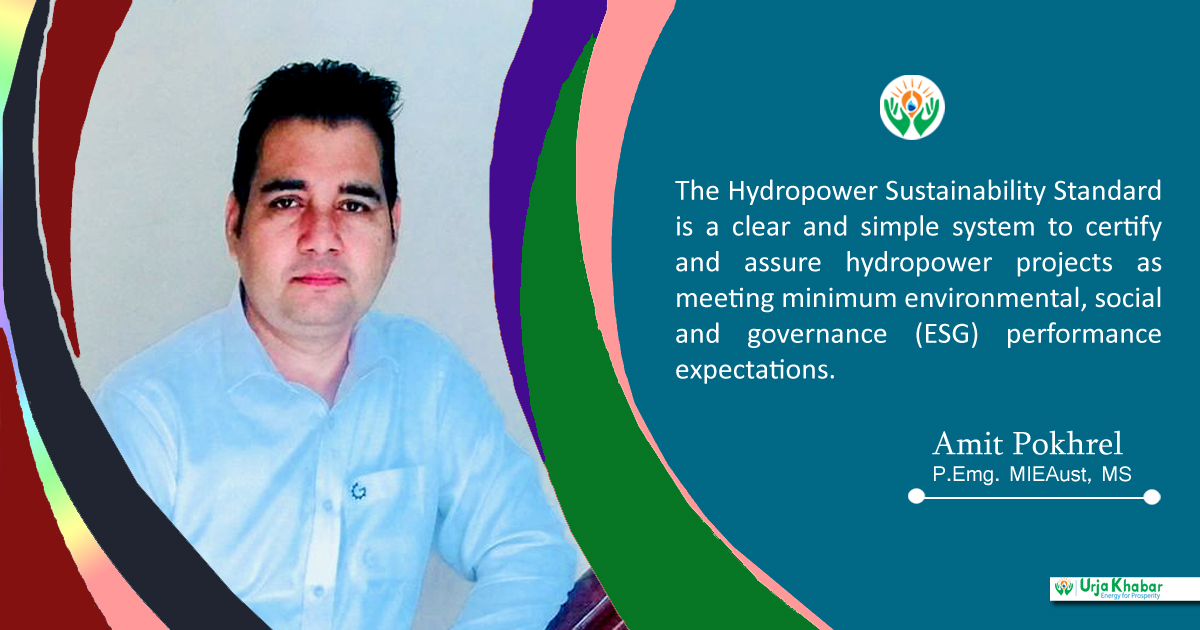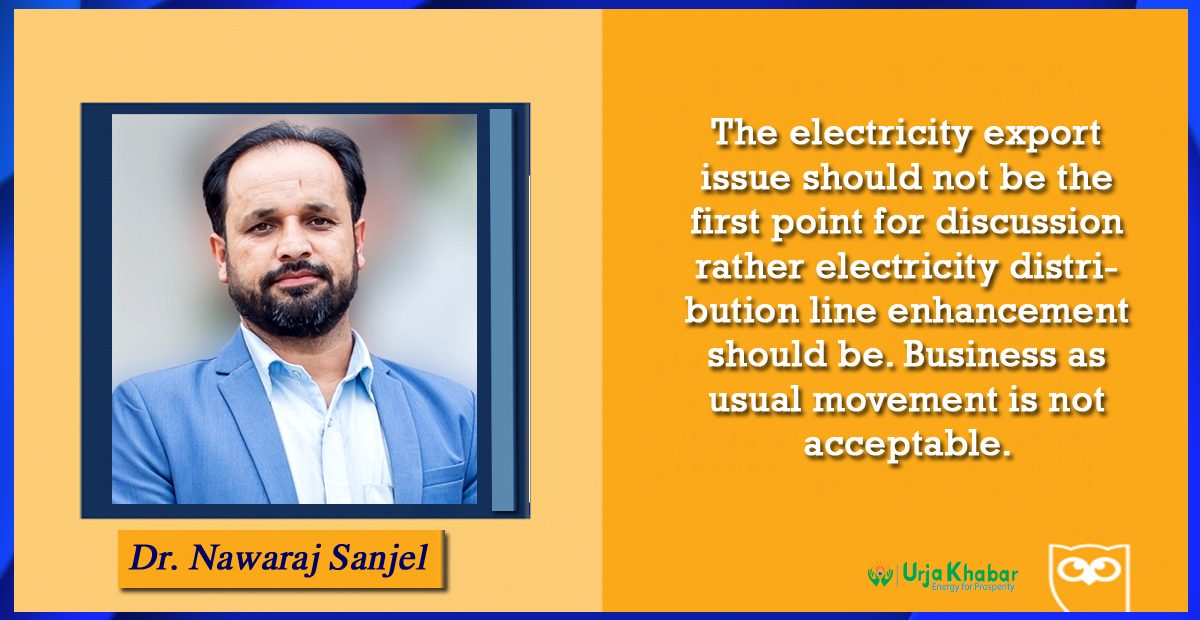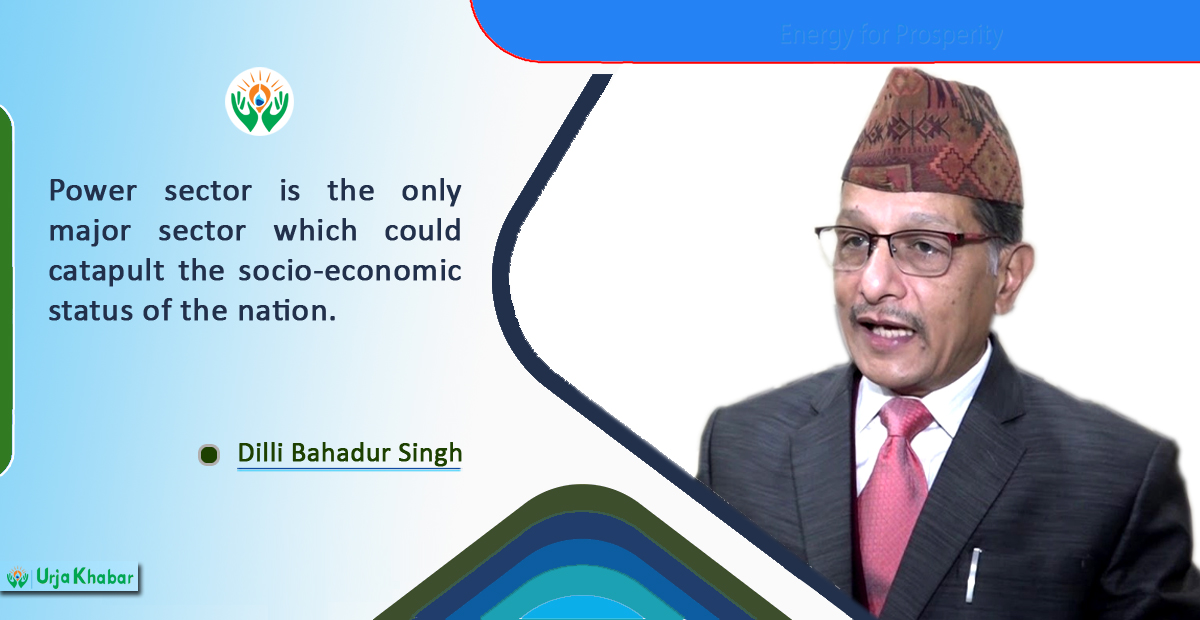Energy Update
Covid-19 Pandemic, Hydropower and Way Forward

Kathmandu; Well done who have kept the lights on and support health services. It reminds everyone what’s can hydropower is an essential service. Looking ahead we need to make sure that today’s crisis is tomorrow’s responsibility/opportunity.
The coronavirus is sweeping through the world like a scythe, disrupting not only our lives but also our jobs, companies, and industries. Whether we suddenly find ourselves telecommuting, facing unanticipated supply chain difficulties, or unable to run our factories, we’re all affected. This update looks at some of the ways this virus-borne disease, Covid-19, is reshaping the engineering world.

Engineering and Economy (2E) are the two wheel which keeps the country running. It’s no secret that engineering is increasingly becoming an interdisciplinary exercise. Today’s machines—from the computer to the MRI system to the coffee maker include hardware, software, electrical, mechanical, energy and other systems all working together.
Without it the society won’t able to innovate, create, develop and thus the economy collapse. Engineering connects resources to the economy and is directly responsible for the growth in every aspect of the country.

Hydropower/Energy sector is one of the major renewable engineering schemes that has lighten up and as fact an economy boon to the country. The coronavirus crisis reminds us that electricity is more indispensable than ever. Hydropower, an often-forgotten workhorse of electricity generation, remains an essential source of flexibility. Hydropower sector need to be ready for the stimulus of the massive projects.
Power sector is one of the areas in Nepal where private companies have played a vital role in the economic enhancement of the country. In fact, IPP’s has shown the path to the government agency that with the extreme mindset a large megaproject can be built in required time. And they have proven too. The exposure of the private sector in Nepal’s hydropower development has thus been a landmark activity for preparing the foundation to transform the entire power and engineering sector.
As per NEA data, Nepal Electricity Authority (NEA) has signed power purchase agreements (PPA) with 341 independent power producers, including some NEA-involved subsidiary companies, for a total power generation of 5,978 MW. Of them, 93 projects have already been injecting power totaling 651 MW in terms of their installed capacity into the national grid. The figure surpasses NEA’s own installed capacity of 635 MW, which also includes the idle thermal capacity of about 53 MW. As of now, 117 power projects, comprising some solar and bagasse ones, are under construction by the private sector, and their completion will be ramping up the country’s installed capacity by 2,837 MW.
The coronavirus (COVID-19) pandemic is affecting the ongoing activities in hydropower projects differently, depending on which stage of construction they belong to. Before the threat of COVID-19 emerged, a best-case projection had led to about 1,000 MW of capacity addition from 50 new projects being developed by different generating companies by the end of the current fiscal year 2019/20. However, the prospect, as per the fresh estimation, has dropped to about 355 MW of capacity from 30 projects in total against the backdrop of the COVID-19 outbreak, which is now spreading, as if, apocalyptically throughout the world.
The objective of the government is to generate 15,000 MW of power in the country in ten years, that is, by the year 2028. There are two major things to accomplishing it: the first, the NEA should continue signing PPAs with the generating companies after sorting out the regulatory and other policy issues, if any; the second, the long-awaited financial closures of 131 power projects with a total capacity of 2,490 MW, for which PPAs have already been signed with the NEA, should be achieved as early as possible.
However, it has been experienced that financial closures are not taking place easily these days as in the past through the Nepali banks.
Apparently, hydropower, consulting firms and construction industries are related to each other. Especially in the construction industry point of view what we saw is that people were criticized in the construction industries for continuing to keep sites open but seeing the urgent nature of work the government should play the role in keeping the site open. Role of these industry in assisting the effort against to combat corona virus is essential. Numbers of people are depending on these industries. We have seen a number of emergency hospitals that have now been built by the construction industry.
The coronavirus outbreak is having significant negative effects on hydropower project development in Nepal. Projects are coming to a halt, and many could be facing delayed completion dates as a result. Apparently, many of the works in hydropower industry is being done by Chinese, Indian labors and specialized personnel. Nepal is being directly affected by the lack of returning employees, as the country is home to many Chinese and Indian-backed hydropower projects. Many of them are in specialized work, and it is not easy to replace them locally.
Likewise, sudden change in working system of employees have shown a drastic drop in efficient result. Engineering industries in the developing world isn’t used to work from home. There was never any protocol or set up with which allowed us to work from home.
The hydropower industry around the world is responding to the covid-19 pandemic efficiently. The weaker fiscal position of these markets due to an economic slowdown also poses a significant downside risk to the completion of new large-scale hydroelectric power projects over the medium term, increasing the risk of delays and cancellations most prominently on primarily government-funded projects.
The future demands for electricity are forecast to explode once again after the COVID-19 situation comes under control, and emissions once again with it.
Governments can turn to a renewables-based energy transition to bring a range of solutions at this difficult moment. Many renewable technologies can be ramped up relatively quickly, helping to revive industries and create new jobs.
Decentralized solutions tend to be comparatively labor-intensive. Adopting renewables can therefore create employment and boost local income in both developed and developing energy markets. Employment in the sector, which reached 11 million jobs worldwide in 2018, could quadruple by 2050, while jobs in energy efficiency and system flexibility could grow by another 40 million.
Decentralized technologies also allow for greater involvement by citizens and communities in energy decisions, with transformative social implications. Importantly, they offer a proven approach for remote health care in energy-poor communities and add a key element to the crisis response toolkit.
In the creation of future infrastructure, energy solutions should aim at scaling up renewables provide a safe and visionary strategic investment choice. Recovery measures could help to install flexible power grids, efficiency solutions, electric vehicle (EV) charging systems, energy storage, interconnected hydropower, green hydrogen and multiple other clean energy technologies.
Renewable industry will probably do better than many just because its role in critical infrastructure and the stimulus impact that the infrastructure investment makes. Hydropower industry is certainly positioned as an essential industry both to help mitigate the crisis which supports critical infrastructure and the people depending on it.
Covid- 19 will reset our society and economy. We should rethink about energy system. There should be a rethink about our global interconnectivity and how we meet the sustainable development goals.
Maybe we should focus on following points to adapt our engineering activities to the new environment caused by Covid 19:
Hydropower could pave the way to create jobs, enhance income levels and help people lift themselves out of poverty and Nepal will find the momentum it needs to kick start.
At the end the “Countries that weather the economic and societal fall-out from the coronavirus better, may choose to renew their investment in and support for cleaner forms of energy.”
Conversation
- Info. Dept. Reg. No. : 254/073/74
- Telephone : +977-1-5321303
- Email : [email protected]














